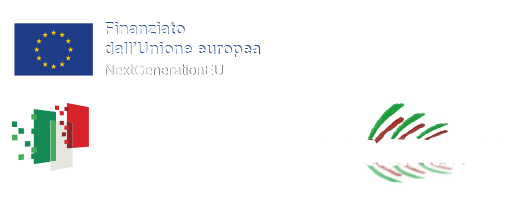SUS-MIRRI.IT
Strengthening the MIRRI Italian Research Infrastructure for Sustainable Bioscience and Bioeconomy
About the project
SUS-MIRRI.IT will develop Research, Services and Training within the Italian network of culture collections MIRRI-IT. Through this project, we aim to increase the bioresources stored at MIRRI-IT Research Infrastructures, while enhancing their characterization and optimizing their management, thus unlocking their genomic and metabolic potential. The optimized management of resources, coupled with the use of digital platforms and a data handling/sharing strategy, will lead to further scientific advances as well as the establishment of innovative solutions and products of biotechnological interest, corroborating the bio-circular economy.SUS-MIRRI.IT, funded by PNRR, is coordinated by the University of Turin and involves 15 institutions with 24 OUs. The project is granted by the European Commission’s NextGenerationEU programme, with a total budget of about €17.000.000.
The Scenario
Culture Collections (CCs) and microbial Biological Resource Centres (mBRCs) are repositories of microorganisms that preserve biodiversity and facilitate the access to microbial strains by scientific and industrial communities. CCs and mBRCs collect and store data about preserved microorganisms, carry out researches, and provide external users with support and services related to microbial resources.The Microbial Resource Research Infrastructure (MIRRI) is the pan-European infrastructure in charge of preservation, analysis, supply and valorisation of microbial resources and their biodiversity. MIRRI has recently achieved the “Landmark” status in the European Strategy Forum on the ESFRIRoadmap 2021, and in June 2022 it has been granted the legal status of European Research Infrastructure Consortium (ERIC) by the European Commission. Five Italian members, including four microbial CCs, took part in the initial preparatory phase for MIRRI establishment, being involved in the IS_MIRRI21 project (Implementation and Sustainability of Microbial Resource Research Infrastructure for the 21st Century) aimed at the self-sustainability of MIRRI in European Union.
Main Goals
SUS-MIRRI.IT main goals:
- Equipping microbiological MIRRI-IT laboratories with cutting-edge technologies to better satisfy National and European stakeholders needs;
- Characterising microbial collections to provide useful informations to stakeholders;
- Implementing the overall organisation of MIRRI-IT and setting up operative procedures and quality standards;
- Compiling the Italian integrated catalogue of microorganisms;
- Shaping MIRRI-IT services according to partner expertise, building capacities and genetic resources;
- Setting up a single-entry point platform to promote resources, services, cutting-edge technologies, expertise and knowledge-transfer activities;
- Strenghtening connections with stakeholders and synergies with other “Health and Food” Research Institutes (RI) in Italy;
- Developing models and plans to support financial sustainability of MIRRI-IT;
- Maximising the visibility of MIRRI-IT in Italy and abroad;
- Creating the Italian node of MIRRI-ERIC and contributing to services and data sharing.
Expected results and impact
SUS-MIRRI.IT expected results and impact:
- Achievement of the required level of Quality Management Service by individual culture collections;
- Availability of high quality microbial resources preserved in CCs linked to MIRRI-IT, along with an organised management of informations, services and facilities;
- Access to the European consortium MIRRI-ERIC to better share characterised microbiomes and single microorganisms, and utilisation of cutting-edge laboratories with highly trained operators;
- Capitals and investments attraction in Bioindustry at national and regional level;
- Recruitment of young researchers by providing doctoral scholarships, in collaboration with private companies and public institutions;
- Enhancement of competitiveness and technological development in Health, Food and Environment strategic areas;
- Increased availability of new services and training activities aimed to fulfill public and private needs at a territorial level;
- Establishment of a MIRRI-IT single entry platform providing an integrated catalogue of information, data and services, along with training, dissemination and outreach activities.
Strategic Impact
- Promoting partnerships on the territory aimed to enhance synergies and favour the aggregation of skills, structures and resources, preserving human resources;
- Facilitating bio-based economy development, contributing to the safety and sustainability of the environment and industrial processes;
- Targeted initiatives and stakeholder-oriented actions to assure that all the results produced by SUS-MIRRI.IT will be disseminated, and, when possible, transferred to industry, thus promoting the contribution to the bioeconomy.


